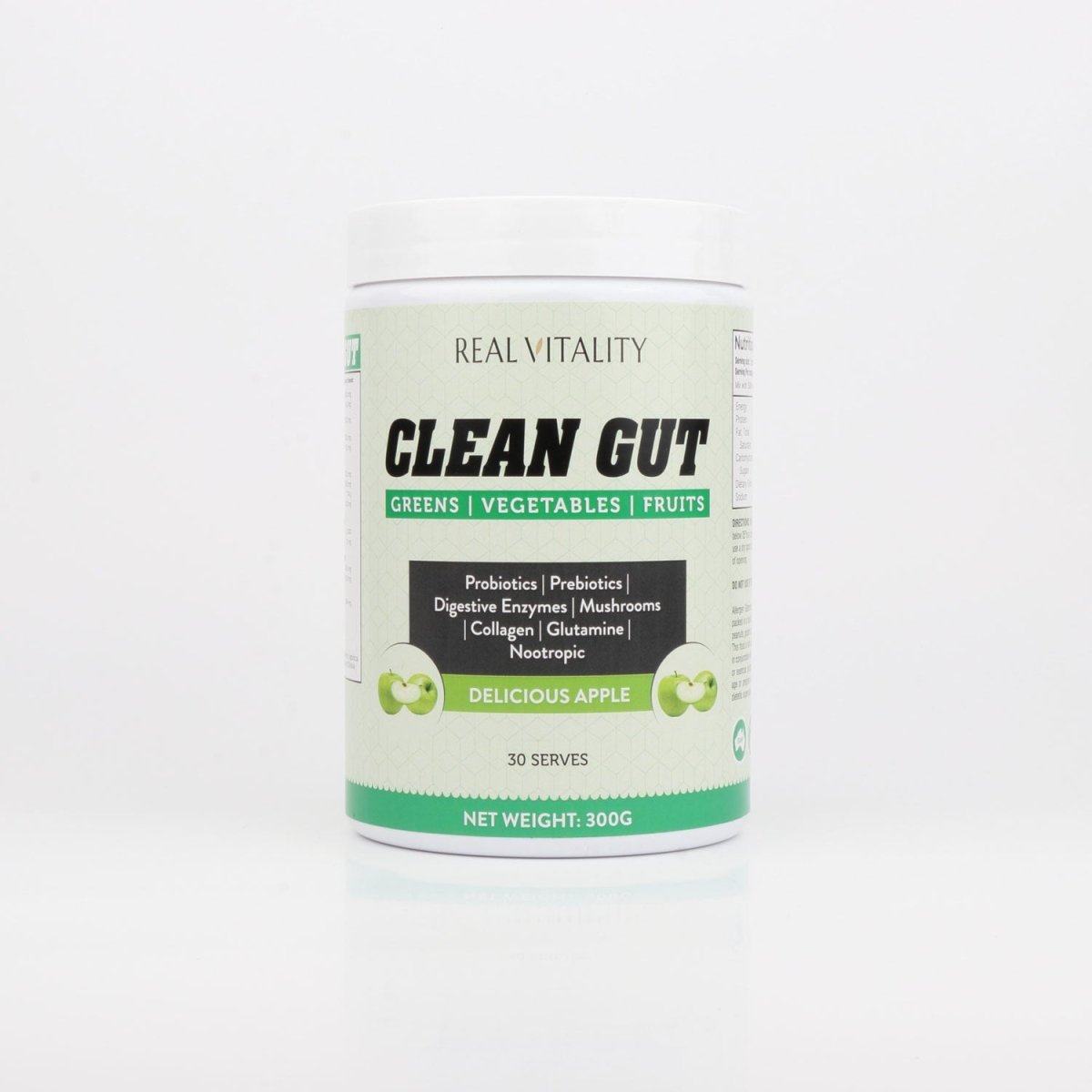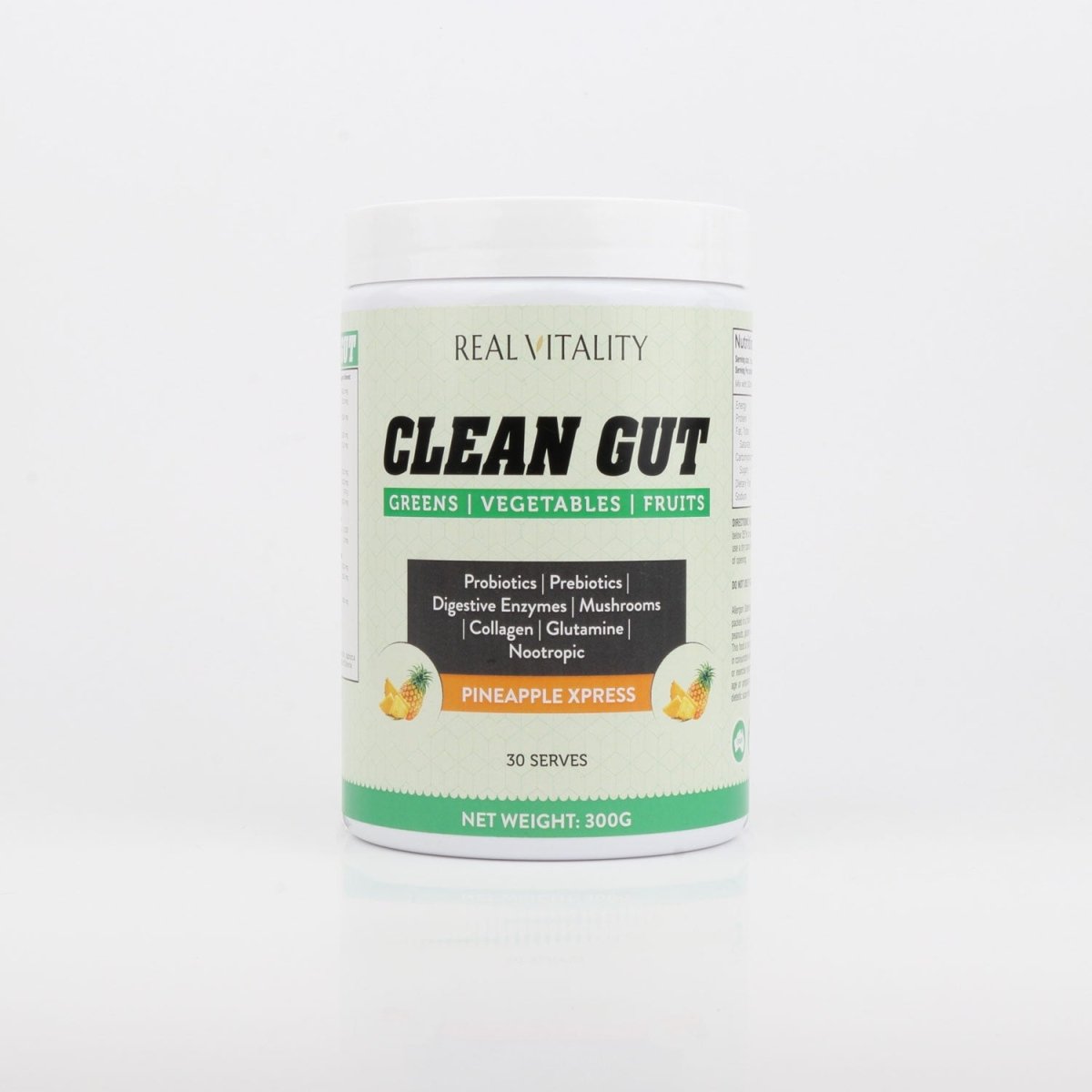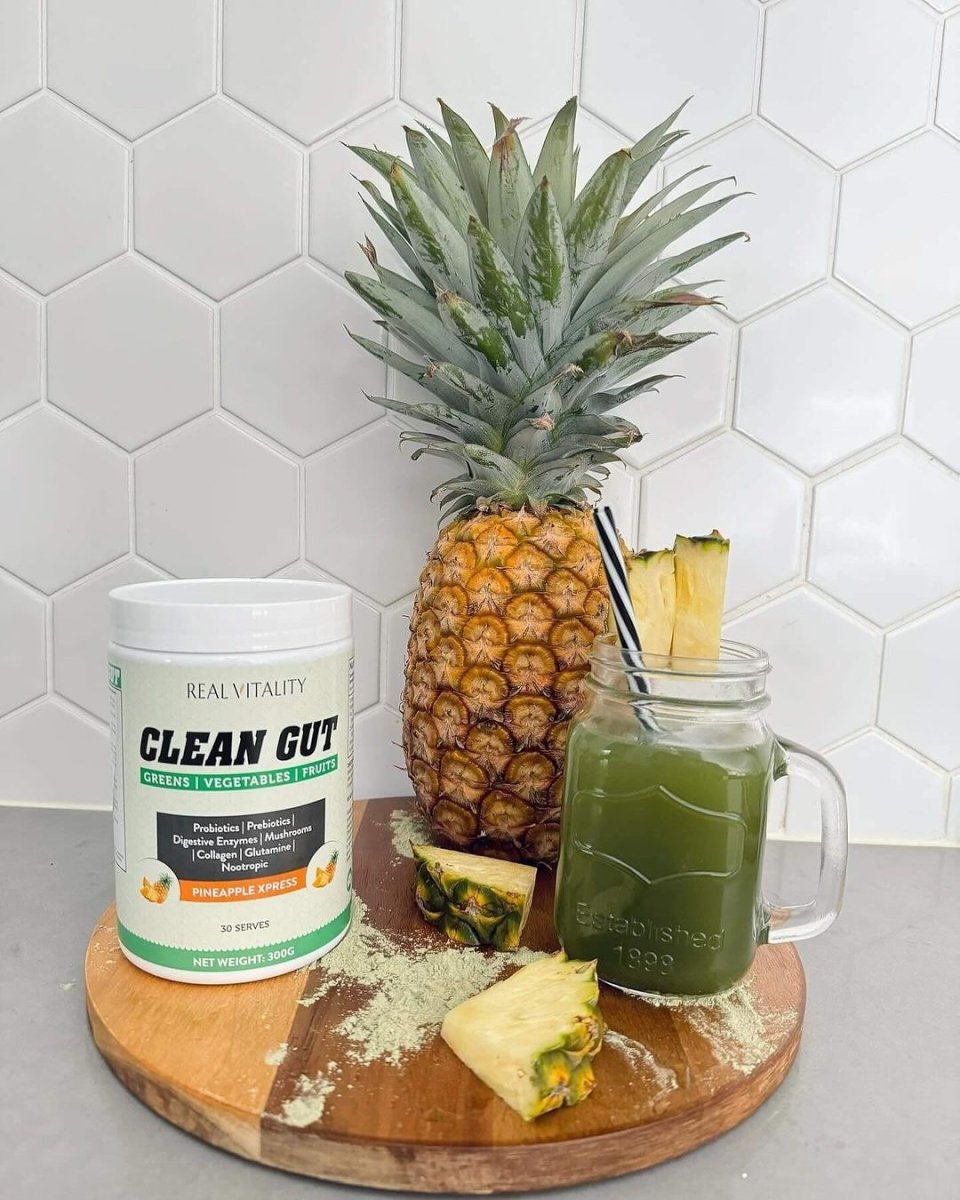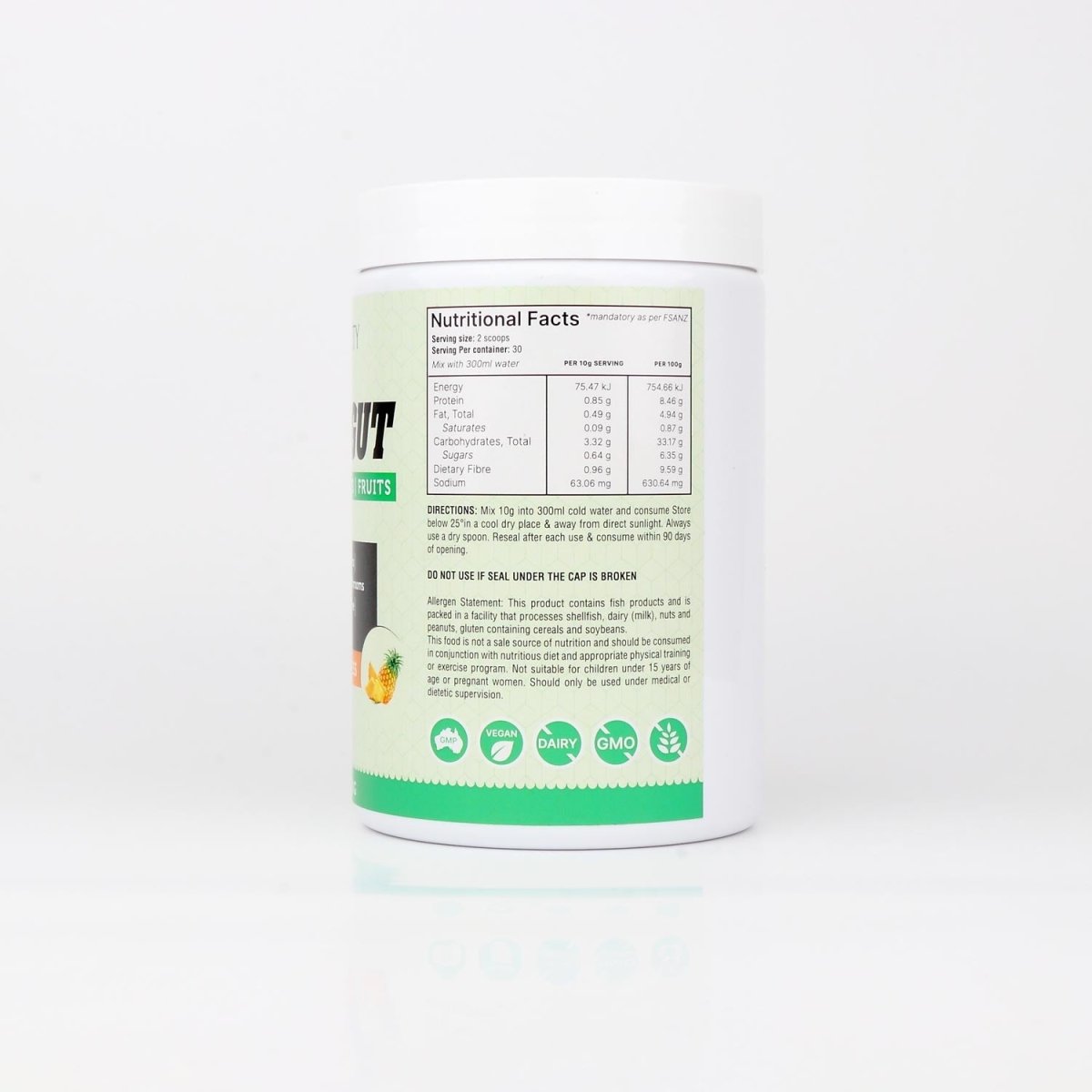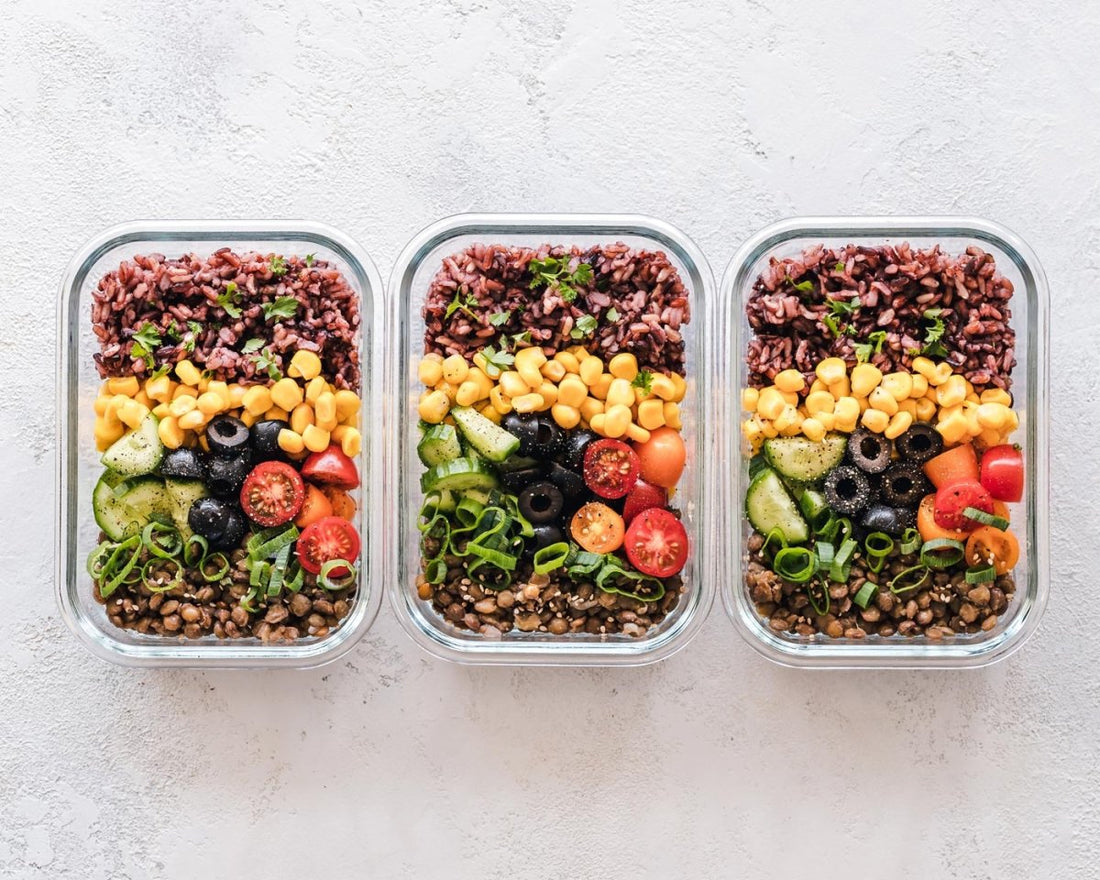
Discovering a Greener Lifestyle: How Plant-Based Diets for Beginners Can Transform Your Health and Our Planet
Share
As health enthusiasts, we're always looking for ways to improve our well-being while also making a positive impact on the environment. One of the best ways to achieve both goals is to adopt a plant-based diet. In this article, we'll discuss the benefits of a plant-based diet for beginners, provide tips for transitioning to this lifestyle, and offer delicious and easy plant-based recipes for beginners.
Introduction to Plant-Based Diets
A plant-based diet is centred around whole, unprocessed plant foods such as fruits, vegetables, whole grains, legumes, nuts, and seeds. This diet excludes or minimises animal products such as meat, dairy, and eggs. Some people also exclude processed foods, oils, and refined sugars from their plant-based diet.
Why Choose a Plant-Based Diet for Beginners?
There are many reasons to choose a plant-based diet for beginners. One of the most significant benefits is improved health. Plant-based diets are rich in nutrients such as vitamins, minerals, fibre, and antioxidants that support overall health and reduce the risk of chronic diseases such as heart disease, diabetes, and cancer.
Another reason to choose a plant-based diet is to reduce your environmental impact. Animal agriculture is a significant contributor to greenhouse gas emissions, deforestation, and water pollution. By choosing plant-based foods, you can help reduce these negative effects on the planet.
Benefits of a Plant-Based Diet for Health and the Environment
A plant-based diet offers numerous health benefits. Research has shown that plant-based diets can reduce the risk of chronic diseases such as heart disease, diabetes, and cancer. They are also associated with lower blood pressure, cholesterol levels, and body weight.
Plant-based diets also have a positive impact on the environment. Animal agriculture is responsible for a significant amount of greenhouse gas emissions, deforestation, and water pollution. By choosing plant-based foods, you can help reduce your carbon footprint and support sustainable agriculture.
Understanding the Whole Food Diet Concept
The whole food diet concept focuses on consuming foods that are minimally processed and as close to their natural state as possible. Whole foods are rich in nutrients and fibre and do not contain artificial additives, preservatives, or sweeteners.
A whole food plant-based diet is an excellent way to achieve optimal health and reduce your environmental impact. By choosing whole, plant-based foods, you can ensure that your body receives the nutrients it needs to function properly, while also reducing your carbon footprint.
How to Start a Plant-Based Diet for Beginners
Starting a plant-based diet can seem overwhelming at first, but it doesn't have to be. Here are some tips to help you get started:
- Start small: Begin by incorporating more plant-based foods into your diet gradually. You don't have to change everything at once.
- Experiment with new foods: Try new fruits, vegetables, grains, and legumes to find new favourites.
- Plan your meals: Plan your meals for the week ahead of time to ensure that you have healthy, plant-based options available.
- Educate yourself: Learn about the benefits of a plant-based diet and the impact of animal agriculture on the environment.
- Join a community: Join a plant-based community or find a plant-based buddy to help you stay motivated and learn new recipes.
Tips for a Successful Transition to a Plant-Based Diet
Transitioning to a plant-based diet can be challenging, but it doesn't have to be. Here are some tips for a successful transition:
- Focus on whole foods: Choose whole, plant-based foods that are rich in nutrients and fibre.
- Don't be too hard on yourself: If you slip up and eat something non-plant-based, don't beat yourself up. Just get back on track with your next meal.
- Experiment with new recipes: Try new plant-based recipes to keep things interesting and prevent boredom.
- Get support: Join a plant-based community or find a plant-based buddy to help you stay motivated and share recipes.
Creating a Plant-Based Diet Meal Plan
Creating a plant-based diet meal plan can be a helpful way to ensure that you have healthy, plant-based options available throughout the week. Here are some tips for creating a plant-based diet meal plan:
- Plan your meals for the week ahead of time.
- Choose whole, plant-based foods that are rich in nutrients and fibre.
- Incorporate a variety of fruits, vegetables, whole grains, legumes, nuts, and seeds.
- Experiment with new recipes to keep things interesting.
- Prep your meals ahead of time to save time during the week.
Delicious and Easy Plant-Based Recipes for Beginners
Here are some delicious and easy plant-based recipes for beginners:
- Chickpea Salad: Drain and rinse one can of chickpeas, add chopped celery, red onion, and red pepper. Mix with a dressing of lemon juice, olive oil, and minced garlic.
- Lentil Soup: Sauté onions, carrots, and celery in olive oil. Add vegetable broth, lentils, and diced tomatoes. Simmer until lentils are tender.
- Quinoa Bowl: Cook quinoa according to package instructions. Top with roasted vegetables, avocado, and a drizzle of balsamic vinegar.
Overcoming Common Challenges in Adopting a Plant-Based Lifestyle
Adopting a plant-based lifestyle can be challenging, but it's worth it. Here are some common challenges and how to overcome them:
- Social pressure: You may face pressure from friends and family who don't understand your new lifestyle. Be confident in your decision and explain your reasons for choosing a plant-based diet.
- Cravings: You may experience cravings for non-plant-based foods. Experiment with new plant-based recipes to find healthy alternatives.
- Lack of variety: You may feel like you are eating the same foods over and over again. Try new fruits, vegetables, grains, and legumes to keep things interesting.
Conclusion and Encouragement for a Greener Lifestyle
Adopting a plant-based lifestyle is one of the best things you can do for your health and the environment. By choosing whole, plant-based foods, you can reduce your risk of chronic diseases, support sustainable agriculture, and reduce your carbon footprint. Remember to start small, experiment with new foods and recipes, and find a supportive community to help you stay motivated.
Real Vitality's Clean Gut supplement is a great addition to any plant-based diet. This unique blend of probiotics, prebiotics, and digestive enzymes is specially formulated to support gut health, which is especially important for those following a plant-based diet. With 11 different strains of beneficial bacteria and a range of digestive enzymes, Clean Gut can help ensure that your body is able to properly digest and absorb the nutrients from the plant-based foods you eat. This supplement is also vegan, gluten-free, and non-GMO, making it a perfect fit for anyone on a plant-based diet. Try Real Vitality's Gut Vitality today and see the difference it can make for your gut health and overall well-being.
If you're unsure on where to start or any steps you need to take to get there, feel free to reach out and message the team at Real Vitality, the team is always willing to help, recommend some tips and tricks to get you on your way and are experts in nutritional supplementation!


